
10 Essential Questions to Ask Before Hiring a General Contractor
When planning a construction or renovation project, selecting the right generalcontractor is critical to controlling quality, timelines, budgets, and managing risks. Contractors bring technical expertise, help mitigate financial risks, enforce dispute resolution procedures, and ensure legal compliance. Many project managers face challenges with licensing, insurance verification, reputation checks, and contract details. This guide outlines 10 key questions that help you verify licensing, review past work, evaluate timelines, negotiate contracts, and ultimately protect your investment from delays, property damage, or lawsuits.
What Are the Most Important Questions to Ask a General Contractor?
Start by asking questions that reveal whether a contractor can meet your project’s demands, budget, and deadlines. Inquire about their licensing and insurance, request examples of past work, and ask how they handle unexpected costs and potential disputes. Their responses should demonstrate technical expertise, sound dispute resolution strategies, and risk management practices covering lien waivers, surety bonds, and workers’ compensation.
How Do You Verify a Contractor’s License and Insurance?
Always request copies of all relevant licenses and insurance certificates and confirm them with state or local licensing boards. A fully licensed and insured contractor protects you from claims of negligence, property damage, or personal injury. Ask for details about their insurance carriers, policy numbers, expiration dates, and coverage for subcontractors or additional bonds. This verification process not only minimizes risks but also ensures the contractor is compliant with all legal and regulatory requirements.
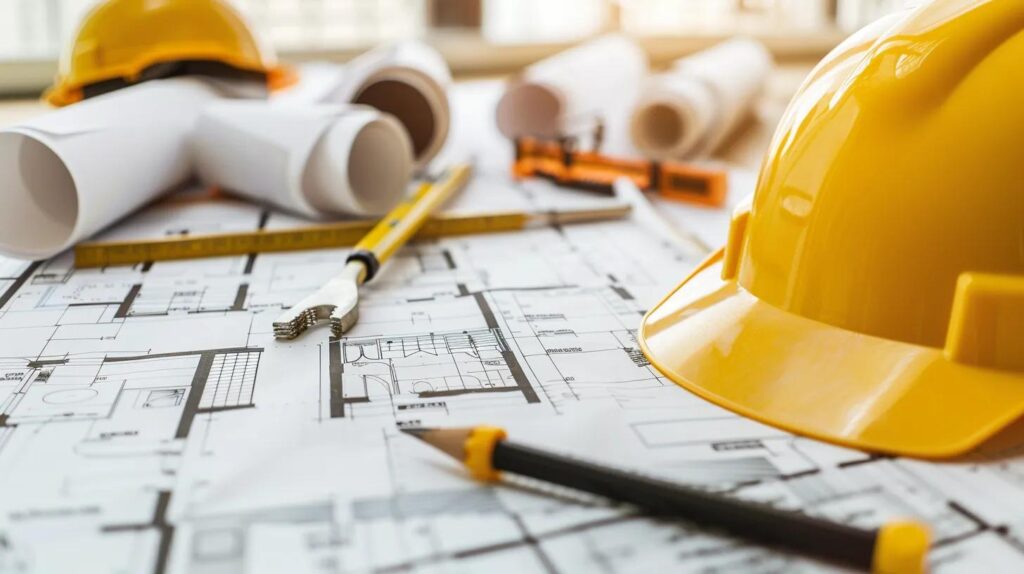
Can You Provide References and Past Project Examples?
Request a portfolio of completed projects and ask for references from previous clients. Reliable contractors will readily provide documentation such as photos, testimonials, and case studies that showcase their attention to detail, adherence to timelines, and quality of workmanship. These references also reveal how the contractor handles change orders, unexpected challenges, and disputes. Past project examples help confirm their technical expertise and ability to manage risks like indirect costs, while a repeat client history indicates overall satisfaction.
What Is Your Estimated Timeline and Project Schedule?
A detailed project schedule is essential. Request a timeline that breaks down key milestones, phase deadlines, and includes contingency plans for delays such as weather or supply issues. The contractor should explain how they monitor progress via regular site inspections and progress meetings. An effective schedule demonstrates their project management skills and ability to handle indirect costs, ensuring your project remains on track and within the agreed unit price or lump sum contract.
What Are the Signs of a Good General Contractor?
Good contractors are reliable, responsive, and technically proficient. They maintain clear communication with clients and subcontractors, uphold industry best practices, and manage documentation diligently. Signs of a good contractor include promptness at meetings, well-organized records, active references, and the ability to explain dispute-resolution methods without litigation. Their transparent pricing and detailed invoices help reduce overall financial risks, ensuring stable project delivery.

How Do You Identify Professionalism and Reliability?
Professionalism is reflected in consistent adherence to safety protocols, timely document submission, and clear communication. Contractors should ensure that all project phases are documented, through change orders and progress reports, and be willing to explain how they have resolved past issues. High ratings on review sites and memberships in professional organizations further attest to their reliability. Their ability to discuss contingency plans and risk allocation offers added assurance that financial risks, including those related to debt or lawsuits, are well managed.
What Red Flags Should You Watch for When Hiring?
Watch for warning signs such as reluctance to share licenses, sparse references, or vague project histories. Inconsistent pricing, demands for full payment upfront, and unclear documentation should be treated with caution. Delayed responses or ambiguous terms in contracts, including missing details on contingencies or indirect costs, can indicate potential future disputes. Early red flags may signal unresolved legal issues or poor quality control practices that could lead to financial risk.
How Does Communication Impact Contractor Quality?
Effective communication is a key quality indicator. The contractor should hold regular progress meetings, provide timely updates, and respond promptly to queries from clients, architects, and subcontractors. Strong communication minimizes misunderstandings and helps quickly resolve issues, reducing delays and controlling indirect costs. Clear documentation, including invoices and change orders, further supports transparency and helps maintain overall project efficiency and profit margins.
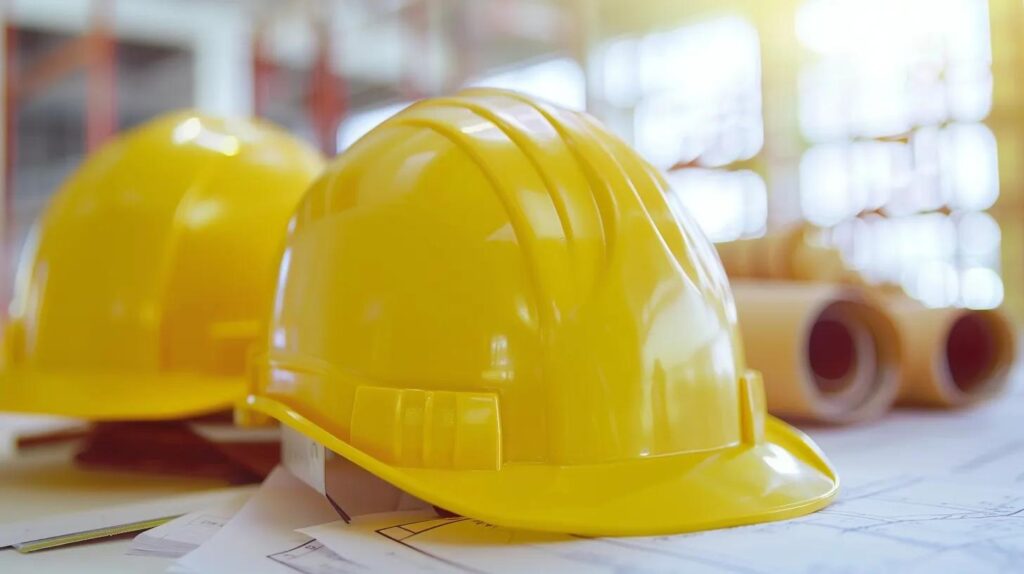
How Can You Prepare for a Contractor Interview?
Before meeting a contractor, prepare a detailed list of questions covering license verification, payment terms, and project management strategies. Review your project’s scope and desired outcomes, and compare contractor portfolios to align expectations. Bring copies of relevant contracts and warranties to guide specialized questions on risk management and retention. Preparation helps you identify potential contractual risks and ensures the contractor’s expertise aligns with your project requirements, paving the way for a successful working relationship.
What Are Essential Contractor Interview Questions?
Key interview questions should probe past project challenges, how subcontractor qualifications are verified, and methods for handling design changes. Ask about their practices regarding material unit pricing, long-term scheduling, and project safety monitoring. Inquire specifically about their use of technology for project management and how frequently they update clients. Direct and detailed responses will reveal their ability to manage overheads, profit margins, and dispute resolution without resorting to litigation.
How Do You Evaluate Contractor Responses Effectively?
Evaluate responses by checking for consistency, clarity, and relevance. Look for specific examples and data that illustrate how they handled previous challenges, such as a 15% schedule delay or unforeseen cost increases. Their readiness to discuss modern project management tools and coordination with design-build teams signals competence. Compare their responses with provided documentation like references and signed contracts to ensure their claims align with their track record.

What Documents Should You Request During the Interview?
Ask for copies of current licenses, insurance certificates, past contracts, project timelines, and change order documentation. Request proof of financial stability, such as bonding information and detailed project portfolios. Comprehensive documentation indicates a commitment to transparency and quality control, ensuring that all risk management processes are verifiable and that the contractor is well-organized.
How Do You Use a Contractor Hiring Checklist to Make the Right Choice?
A contractor hiring checklist organizes all essential evaluation criteria, helping ensure no critical details are overlooked. The checklist should cover verification of licenses, review of insurance and bonding documents, reference checks, examination of past projects, clear schedule commitments, and detailed contract terms including payment schedules and dispute resolution methods. This tool provides an objective framework to compare contractors and mitigate risks by highlighting discrepancies early, thus supporting a well-informed hiring decision.
What Items Should Be Included in a Hiring Checklist?
The checklist should include: 1. Verification of current licenses and certifications. 2. Evidence of adequate liability insurance and bonding. 3. Detailed records of past projects and client references. 4. A transparent project schedule with defined milestones. 5. Written contract terms covering payment schedules, change order procedures, and dispute resolution methods.
Each item ensures that every aspect of the contractor’s profile is verified, reducing the risk of future disputes or cost overruns.
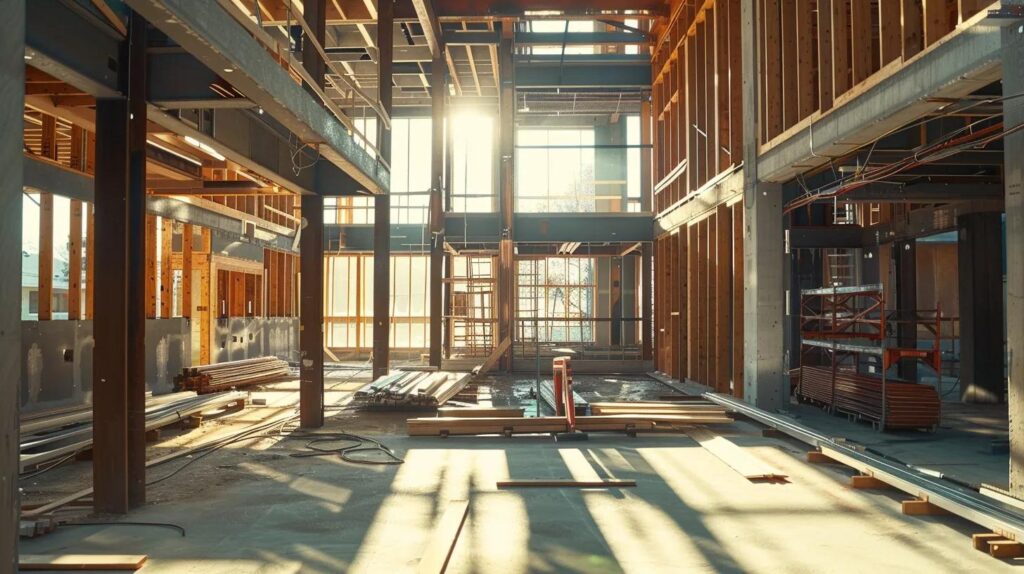
How Does a Checklist Help Avoid Common Hiring Mistakes?
A well-structured checklist prevents common oversights such as expired licenses or incomplete insurance details. It provides a systematic approach to compare multiple contractors on a standard set of criteria, reducing misunderstandings and highlighting red flags early. By ensuring thorough documentation and clear communication, the checklist minimizes financial risks and potential legal issues during project execution.
Can You Customize a Checklist for Your Specific Project Needs?
Absolutely. A checklist can be adapted to address the unique requirements of your project. For specialized projects involving design-build arrangements or specific infrastructure modifications, include items related to specialized certifications, local building codes, unit price agreements, and conditions like retainage or change orders. Customizing the checklist ensures that every unique aspect of your project is reviewed, further safeguarding against risks.
What Contract and Payment Questions Should You Ask Before Hiring?
Understanding the contract and payment structure is vital to prevent overcharges and ensure project completion as agreed. Discuss fees, payment schedules, and potential additional costs like change orders upfront. Questions should clarify whether the contract is fixed price or lump sum, detail retainage amounts, and specify contingency fee arrangements. A clear, detailed contract minimizes financial surprises and aligns expectations between you and the contractor.
How Do You Understand Payment Terms and Schedules?
Ensure payment terms are linked to project milestones so funds are released only after verified progress. Clarify whether the pricing model is fixed price, time-and-materials, or a hybrid. Additionally, confirm that the contract includes provisions for holdbacks, retainage, or adjustments for change orders. Detailed invoices and supporting receipts should accompany each payment to maintain financial control.
What Should Be Included in a Written Contract?
A solid written contract should detail the scope of work, cost breakdowns (materials, labor, overhead), project timelines, and steps to address delays or change orders. It must specify total project cost, retention amounts, warranties, and insurance responsibilities. An addendum for any specialized requirements further protects both parties from unforeseen financial risks. Such a contract serves as a legally binding document that minimizes ambiguity and sets clear expectations.
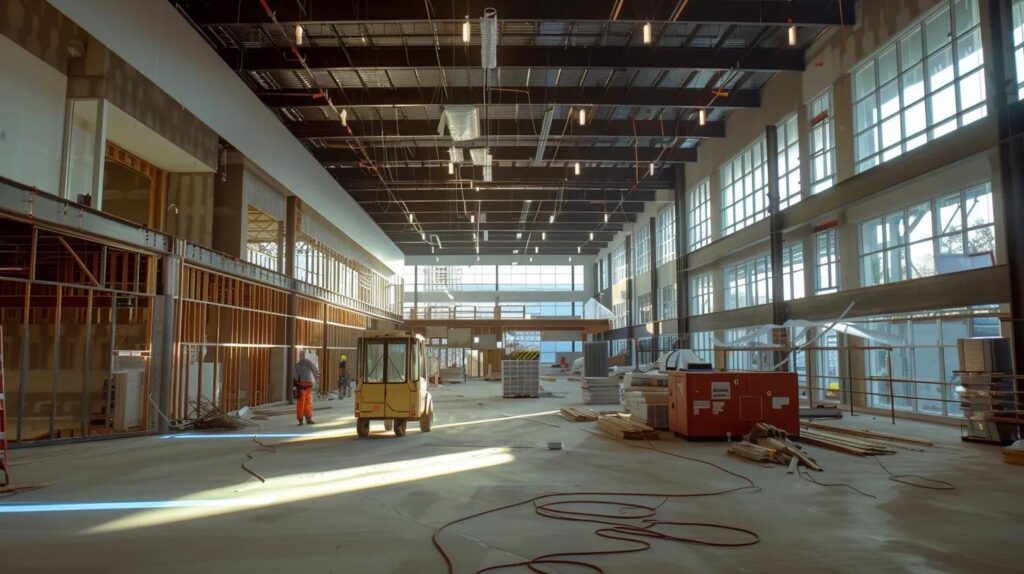
How Do You Handle Change Orders and Unexpected Costs?
Discuss how change orders will be managed before work begins. The contract should require all deviations from the original plan to be documented and approved in writing. This process covers reasons such as unforeseen site conditions or material shortages and includes contingency funds or clauses that detail how cost overruns are handled. Clear procedures help control delays and ensure financial risk is evenly shared.
How Do You Assess a Contractor’s Experience and Expertise?
When evaluating a contractor, consider both the number of years in business and the complexity of projects they have managed. Look for experience in similar projects—whether residential renovations or high-end commercial developments—and evidence of successfully handling issues like dispute resolution and insurance coordination. Certifications, awards, and positive feedback from previous clients further verify their expertise and ability to manage indirect costs, complex contracts, and legal aspects reliably.
What Types of Projects Should a Contractor Have Completed?
A competent contractor should have experience with projects similar in scale and complexity to yours. For residential work, this may include new home constructions, significant remodels, or exterior renovations involving demolition and reassembly. For commercial projects, experience with multi-phase developments, strict timelines, and safety controls is essential. A robust portfolio with client testimonials and documented challenges demonstrates their capability and reliability.
How Do You Verify Specialized Skills or Certifications?
Ask for copies of industry certifications, training records, and professional memberships that relate to modern construction practices, sustainable building, or advanced concrete work. Verify these documents with the issuing bodies to confirm their authenticity. Evidence of continuous professional development reinforces the contractor’s commitment to maintaining industry standards and reduces risks associated with subpar workmanship.
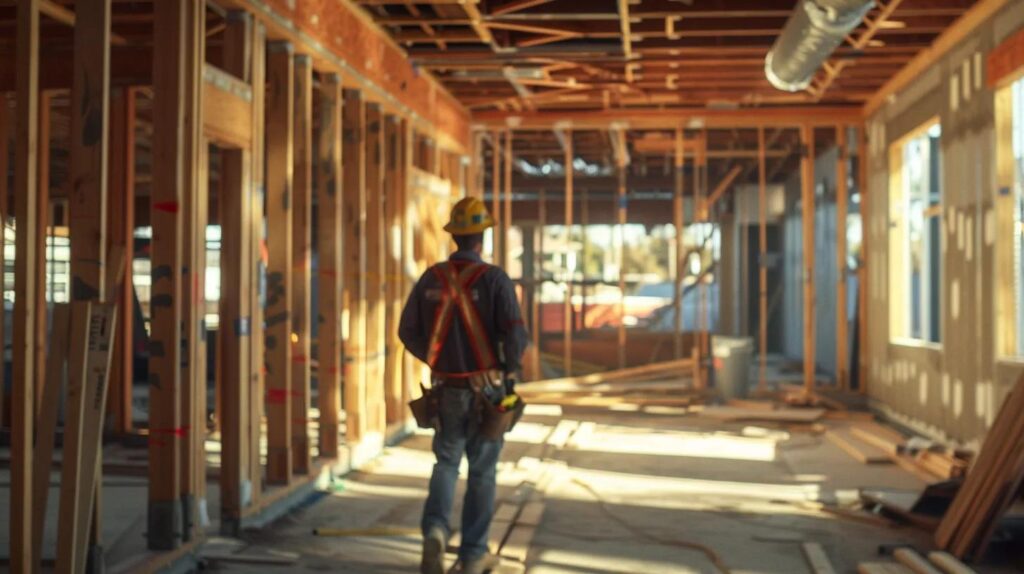
Why Is Local Experience Important for Your Project?
Local contractors are typically more familiar with regional building codes, permitting processes, and local supply chains. Their established relationships with local suppliers and inspectors help streamline project logistics and reduce delays. Moreover, positive local references and a solid reputation within the community are strong indicators that the contractor can manage potential local challenges effectively, ultimately reducing overall project risk.
How to Protect Your Project From Contractor Scams and Poor Workmanship
Protecting your project involves thorough background checks, careful documentation, and regular oversight. Verify all licenses and insurance before hiring, and research online reviews and past legal issues to identify potential red flags. A comprehensive contract with detailed terms and clear dispute resolution methods further shields you from unexpected cost increases, incomplete work, or fraudulent practices. Regular site inspections and progress reviews add an extra layer of security, ensuring accountability at every stage.
What Are Common Red Flags When Hiring a Contractor?
Key red flags include reluctance to provide licenses or references, inconsistent pricing, and vague project documentation. Be wary if a contractor demands a large upfront payment without a clear schedule or if their contract lacks transparency regarding change orders and indirect costs. Such signs may indicate poor risk management and potential legal disputes down the line.
How Do You Check for Complaints or Legal Issues?
Research through local licensing board databases and consumer protection agencies, and review online feedback on platforms like the Better Business Bureau, Yelp, and Google Reviews. Request documentation of any past litigation or settlements from the contractor. Directly contacting former clients can also reveal recurring issues that may affect your project, helping you avoid a contractor with a problematic history.
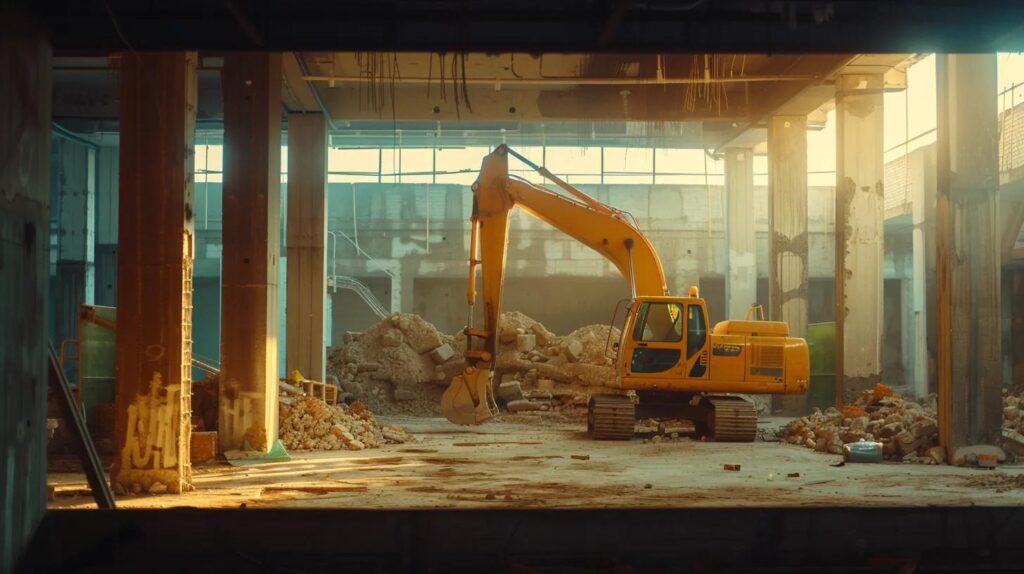
What Steps Can You Take to Ensure Quality Work?
Ensure quality by first drafting a detailed contract that specifies work scope, quality standards, and payment milestones. Require periodic independent inspections to verify compliance and maintain thorough communication with the contractor through documented progress reports and meeting minutes. Performance-based incentives and clear penalty clauses for delays or substandard work provide additional assurance that quality remains a top priority.
Frequently Asked Questions
Q: How can I immediately verify a contractor’s license and insurance? A: Request current copies of the contractor’s license and insurance certificates and verify them with local licensing boards to ensure they meet legal requirements, reducing financial risk.
Q: What is the best method to check a contractor’s past project quality? A: Ask for a portfolio and references, and if possible, visit completed project sites. Review testimonials and third-party ratings to confirm reliability and effectiveness.
Q: How do payment schedules in the contract protect me from unexpected costs? A: Linking payment schedules to clearly defined milestones ensures payments are made only after verified progress, preventing premature disbursement and managing change orders effectively.
Q: Why is local experience an important factor in hiring a contractor? A: Local contractors understand regional codes, permitting, and supply chains, which enhances project efficiency and reduces the risk of unforeseen challenges.
Q: What should I do if I notice red flags during a contractor interview? A: Seek additional references, conduct further due diligence, or consider other candidates if the contractor is vague or inconsistent in their responses.
Q: Are change orders manageable in a well-drafted contract? A: Yes, a well-drafted contract will clearly outline the procedure for change orders, including documentation, approvals, and cost adjustments.
Q: How can I ensure that communication remains effective during the project? A: Establish regular progress meetings and clearly defined communication protocols in the contract to ensure consistent updates and clarity throughout the project.
